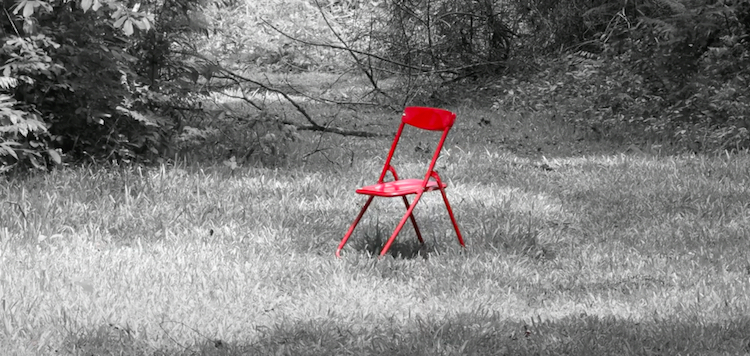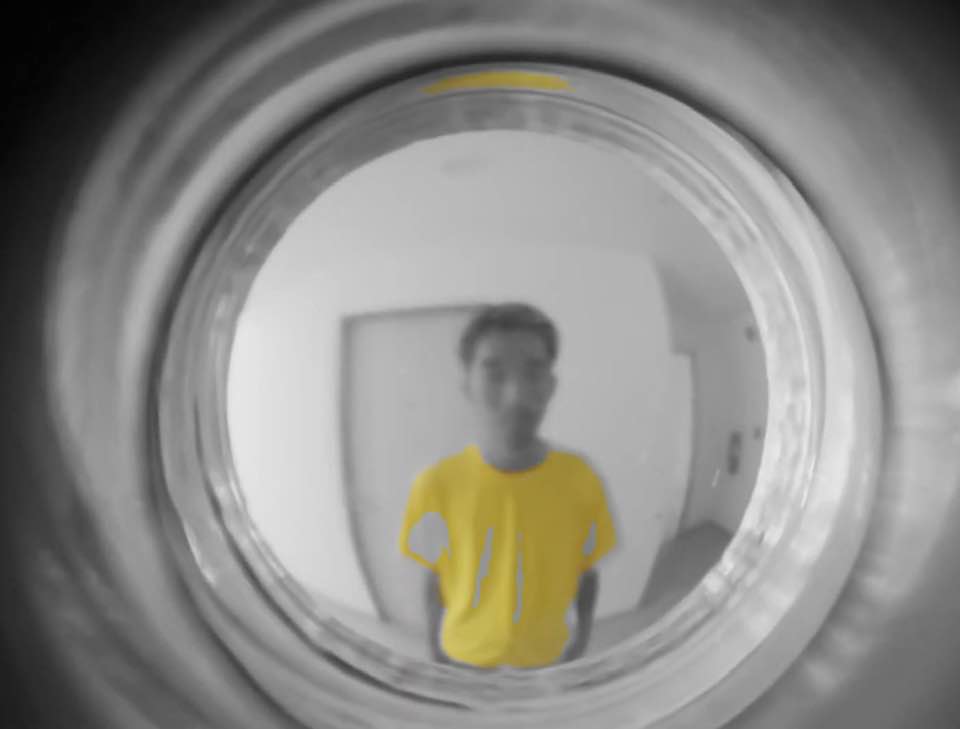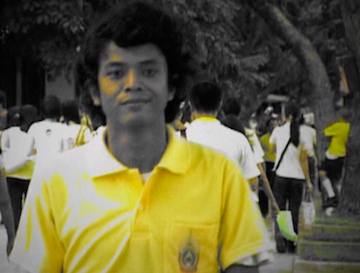
Chatchawan Thongchan’s powerful short film From Forest to City (อรัญนคร) begins with an epigraph by Kittivuddho Bhikku, an influential Buddhist monk: “Killing a communist is not a sin.” This infamous quote gave nationalist paramilitary groups a licence to kill and, a few months later, they invaded Thammasat University’s campus and lynched dozens of students. The monk’s words — taken from an interview he gave to จัตุรัส (‘square’) magazine on 29th June 1976 — also appear in Thunska Pansittivorakul’s documentary The Terrorists (ผู้ก่อการร้าย) and Manussak Dokmai’s short film Don’t Forget Me (อย่าลืมฉัน), and artist Sutee Kunavichayanont rendered the quotation as calligram.
From Forest to City is a black-and-white drama in three parts, narrated by a woman who survived the Thammasat massacre and joined the communist insurgency. In the first part, smoke billowing from an oil drum signifies the hundreds of suspected communists who were, as Anocha Suwichakornpong’s film By the Time It Gets Dark (ดาวคะนอง) explains, “set on fire in oil barrels.” In part two, comparing 1976 to the present day, the narrator regrets that Thailand hasn’t changed. Society remains irreconcilably divided, between student protesters and the conservative establishment.
Although the film is black-and-white, there are two flashes of colour: a red folding chair, and a yellow t-shirt. Thanks to Neal Ulevich’s famous photograph of a man beating a corpse with a folding chair, this single item of furniture has come to symbolise the entire Thammasat massacre. The yellow t-shirt in an otherwise black-and-white shot recalls Chai Chaiyachit and Chisanucha Kongwailap’s short film Re-presentation (ผีมะขาม ไพร่ฟ้า ประชาธิปไตย ในคืนที่ลมพัดหวน), in which the yellow t-shirts worn by monarchists are the only objects shown in colour.
From Forest to City is a black-and-white drama in three parts, narrated by a woman who survived the Thammasat massacre and joined the communist insurgency. In the first part, smoke billowing from an oil drum signifies the hundreds of suspected communists who were, as Anocha Suwichakornpong’s film By the Time It Gets Dark (ดาวคะนอง) explains, “set on fire in oil barrels.” In part two, comparing 1976 to the present day, the narrator regrets that Thailand hasn’t changed. Society remains irreconcilably divided, between student protesters and the conservative establishment.
Although the film is black-and-white, there are two flashes of colour: a red folding chair, and a yellow t-shirt. Thanks to Neal Ulevich’s famous photograph of a man beating a corpse with a folding chair, this single item of furniture has come to symbolise the entire Thammasat massacre. The yellow t-shirt in an otherwise black-and-white shot recalls Chai Chaiyachit and Chisanucha Kongwailap’s short film Re-presentation (ผีมะขาม ไพร่ฟ้า ประชาธิปไตย ในคืนที่ลมพัดหวน), in which the yellow t-shirts worn by monarchists are the only objects shown in colour.


In part three, From Forest to City switches gear with a documentary montage of various dramatic episodes from modern Thai history: the Thammasat massacre, armoured personnel carriers demolishing red-shirt protest camps, riot police firing water cannon at students in Siam Square, and Arnon Nampa’s Harry Potter-themed protest. In an echo of Prap Boonpan’s sadly prophetic short film The Bangkok Bourgeois Party (ความลักลั่นของงานรื่นเริง), a yellow-shirt mob is seen attacking a pro-reform protester.
The montage of news footage is set incongruously to รักกันไว้เถิด (‘let’s love each other’), a Cold War propaganda song whose lyrics call for national unity. This technique — the ironic juxtaposition of uplifting music and images of state violence — has been used in several documentaries, including The Terrorists, This Area Is Under Quarantine (บริเวณนี้อยู่ภายใต้การกักกัน; also from Thunska), and บันทึกสีดำ (‘black record’).
The montage of news footage is set incongruously to รักกันไว้เถิด (‘let’s love each other’), a Cold War propaganda song whose lyrics call for national unity. This technique — the ironic juxtaposition of uplifting music and images of state violence — has been used in several documentaries, including The Terrorists, This Area Is Under Quarantine (บริเวณนี้อยู่ภายใต้การกักกัน; also from Thunska), and บันทึกสีดำ (‘black record’).
